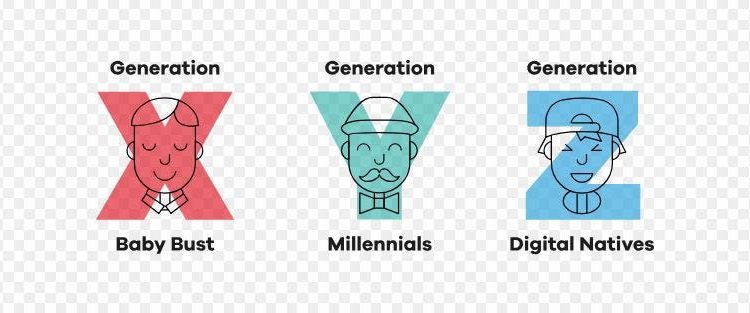Education has a main role in transition toward a sustainable society. Traditional education paradigms are based on passive learning and technical specialisation. Nevertheless, multi domain sustainable challenges require a new paradigm. Different students’ generations are involved in taking actions on environmental and social issues, and teaching sustainability is the ideal opportunity to regard them. There is a need to understand each generation’s features, so to board it according to its characteristics. Therefore, a literature research on the introduced topics is presented, as well as a paradigm based on generations and the ways they learn the best. For generations under study, X, Y and Z are the chosen ones to be comprehended. Generation X comprises those born between 1965 and 1981, during the reconstruction of Europe after the war. They have not had an easy life, since, after a tur-bulent period, having a job was a great challenge. Generation Y or ‘Millennials’ are meant to be the digital one, considered to be people born between 1982 and 1994 to whom tech-nology is part of their daily lives: all their activities are mediated by a screen. Generation Z, also known by other names such as post millennial or centennial, is the demographic cohort that follows the millennial generation and precedes Generation Alpha. Demogra-phers and researchers typically point to the mid to late 1990 to mid 2000s as the beginning of the generation’s birth years, while there is little consensus regarding its termination. The majority of people belonging to Generation Z have been using the Internet from a very young age and are comfortable with technology and social media. It is estimated that Generation Z people account for 23.7% of the world’s population. Understanding complex sustainability issues requires systems thinking to perceive interconnected social, ecologi-cal and economic dimensions holistically. However, fragmentation in curriculum design inhibits contextual comprehension. Lateral networking is fostered for their capacities to coordinate inclusive participation, like decentralised community platforms and tokenized incentives models. Combining cultural partnership skills with distributed governance sca-ffolds cooperative systems enabling just resilience. Experiential teaching techniques for Gen X, Y Z influence the way of solving complex environmental and social issues.
Greening the Youth’s Mindset to Cultivate Sustainability at Religious Schools
As the consequences of climate change and ecological degradation mount globally with little societal momentum toward solutions, mobilising youth to...
Read more




